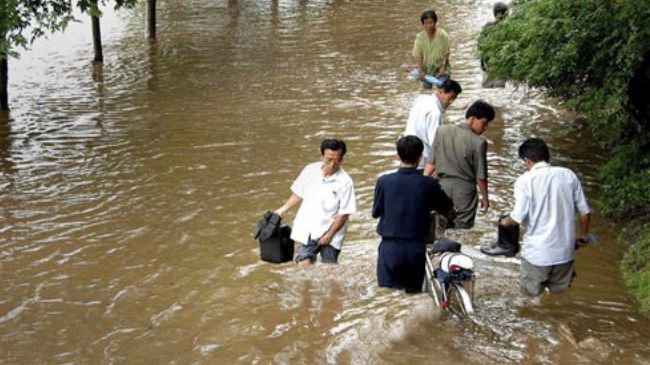Rajin is the capital of the Rason Special Economic Zone in North Hamgyong Province.
"It rained really hard, and fast. On Saturday morning the city was flooded. Cars were wading through water like boats," a source who was in area when it flooded told Reuters.
It was not clear what impact the rain would have in a country that said in June it was suffering from its worst drought in a century. South Korea said in July some rain had fallen in the North, easing conditions.
North Korean state media said there had been 40 "casualties" and "massive" damage after 250 mm (9.5 inches) of rain fell over the weekend. About 155mm (6 inches) fell in just three hours on Saturday, it said.
Following the downpour, authorities in neighbouring China worked with North Korean border officials to evacuate 484 Chinese tourists, according to a Chinese news website, stranded when part of the sole road to the border was washed away.
Many of the tourists had been at a trade fair in Rajin.
Chinese authorities sent dump trucks, forklifts and other heavy equipment to Rajin to help with relief efforts, the news website said, adding that all of the tourists were safe.
Calls to government offices in the neighbouring Chinese city of Hunchun went unanswered.
The heavy weather was associated with a system surrounding
Typhoon Goni, which struck the Philippines on Saturday, killing four people.
North Korea was not directly hit by Goni, but it is prone to flooding. High ground is often cultivated meaning there is little forest cover to soak up rain, so it runs off into villages and towns below, and often causes landslides.
In early August, torrential rain in the same area killed 21 people and affected 3,400, according to the U.N. Office for the Coordination of Humanitarian Affairs.
The source in the area said farm land was also flooded.
More about:
















































